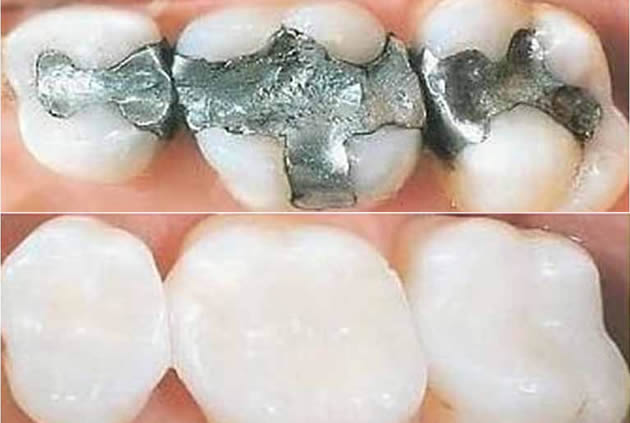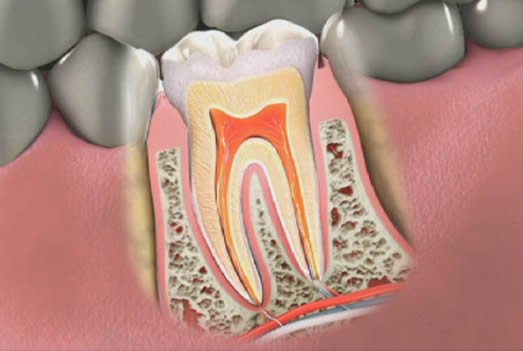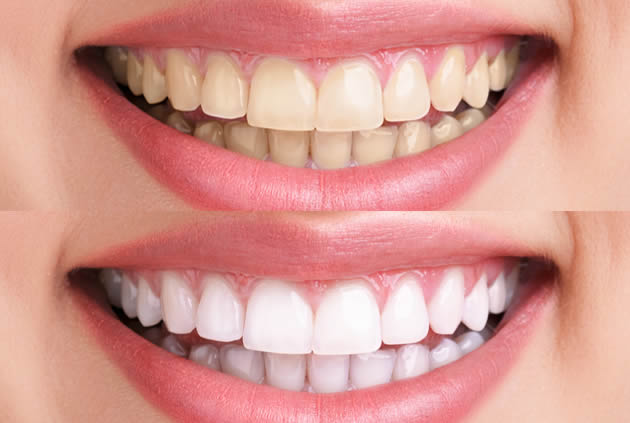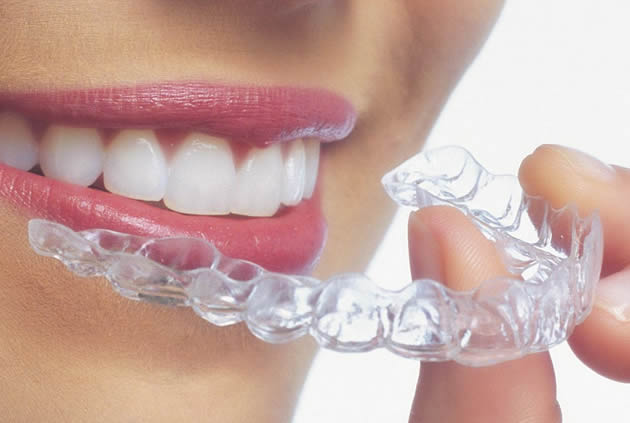
Fun in the summer sun can cause unpleasant side effects such as cold sores and fever blisters. Brought on by herpes simplex virus type 1 (HSV-1), cold sores and fever blisters are transmitted from person to person by saliva or by skin contact. With cold sores, you generally develop clusters of tiny blisters on the lip. Most people are exposed to HSV-1 before age 10. After the first infection, the virus remains inactive until stress, illness, or sun exposure causes a new outbreak.
During the first exposure, you may have headache, nausea, fever, and/or vomiting. Patients may also have painful swelling and open mouth sores. Most of the time, cold sores or fever blisters appear on the edges of your lips. Usually, these outbreaks start with tingling or burning followed by swelling or redness. One or more blisters will typically appear within 24 to 48 hours.
Initial symptoms can last for 7 to 14 days. When the cold sores or blisters reappear, they generally crust over in about four days and then heal within 10 days. You may want to visit your doctor or dentist the first time you develop cold sores or fever blisters, but after that, you shouldn’t need medical attention. Keep the area clean and apply topical medication to lessen symptoms as well as promote healing.
Preventing a first infection for loved ones involves making sure that no one with an active fever blister kisses your kids or other family members. Sunscreen can help protect your lips from cold sores brought on by too much time in the sun.
Dentist in Baltimore
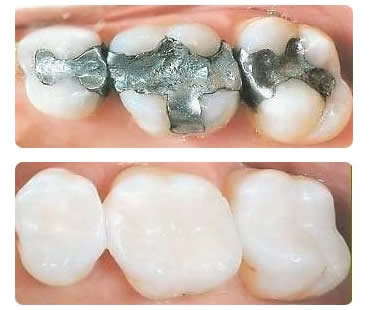
At one time, metal fillings were the only choice to repair tooth decay. Now, many dentists have switched to composite resin fillings, which match natural-tooth color so they don’t compromise the appearance of your smile. Tooth-colored fillings have gained popularity, and many dentists only offer this option. In recent years, there has been a strong push to eliminate amalgam fillings all together.
Amalgam fillings are made of several metals, with up to a 50 percent composition of mercury. It is widely known that mercury is toxic to the body. Some of the concern about amalgam fillings is the affect mercury has on the body, including:
• Causing damage to the kidneys
• Contributing to infertility
• Impacting the nervous system
• Interfering with the function of the thyroid and pituitary glands
• Posing unknown risk to a fetus
• Weakening the immune system
Because each person is different, you may have no reaction to the amalgam fillings. Over time, though, these restorations may change shape or crack, which can cause them to leak. If the fillings don’t hold up, the area may become susceptible to additional damage or decay.
At your checkup, have the dentist evaluate any old fillings to make sure they are still in good condition. You can also discuss the benefits of replacing amalgams with composite fillings. The newer restorations blend with your natural tooth coloring and require less removal of health tooth structure, which allows for a more conservative repair.
If you need a dentist in Baltimore contact us today
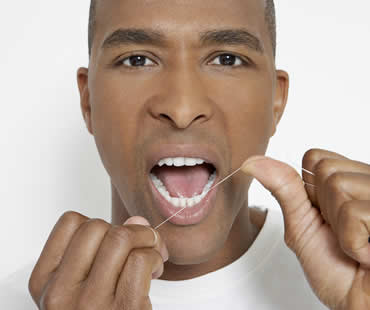
Cleaning between your teeth and along your gums with dental floss is just as important as using your toothbrush. Although many people complain about flossing or completely avoid doing it, there should be no excuse for neglecting this part of your dental hygiene routine.
Flossing your teeth allows you to get rid of food particles and plaque that is caught between your teeth. It is able to reach areas that your toothbrush can’t. Therefore, flossing plays a key role in preventing tooth decay, gum disease, and bad breath.
You should floss your teeth at least once every day, using a gentle touch so you don’t damage your gums. You can use waxed or unwaxed dental floss, depending upon your preference and which one works best for you. Interdental cleaning aids like picks and sticks may also be carefully used, as well as floss holders. These tools are especially helpful for those with arthritis and vision problems.
Another item that may help remove trapped food debris is a water spray tool called an oral irrigator, although it shouldn’t replace flossing. The same is true for mouthwash, which may be used to help rinse away germs and temporarily freshen breath. You can add these items to your hygiene routine, but giving up flossing should not be an option. Using dental floss is the very best way to attack food particles and plaque so that you have the greatest chance for a healthy mouth.
Dr. Litwin is a family and cosmetic dentist in Baltimore

Why wait until you have a toothache, bleeding gums, bad breath, or other problems to decide it’s time to start focusing on your oral health? Your mouth and your whole body can benefit from maintaining good oral health. Here is some simple advice that will help you along the path to a healthy smile.
Brushing and flossing
Tooth decay and gum disease are both preventable with proper brushing and flossing. Brush with a soft-bristled toothbrush and fluoride toothpaste, using a circular motion. It’s best to brush after every meal, but twice a day should be the minimum. Gently floss your teeth daily to remove food particles and bacteria between your teeth.
Eating right
Focusing on eating foods from each food group will aid your oral health in addition to your overall health. Not getting essential nutrients in your diet increases your risk of gum disease, and also makes it more difficult for your body to resist infection. Eat low fat dairy items, lean proteins, vegetables, fruits, and whole grains. Look for foods low in sugar, which can lead to tooth decay. Avoid snacking too much during the day when you aren’t going to brush your teeth afterwards, and drink plenty of water throughout the day.
Seeing your dentist
Visit your dentist at least twice a year for checkups. During these appointments, your dentist will look for problems and professionally clean your teeth. Delays in treatment of some conditions can cause them to worsen to the point that treatment may be more painful, difficult, or costly. Your dentist will help you keep your teeth and gums healthy so that you can keep smiling as long as possible.
If you live in the Baltimore area contact us today

One of the greatest gifts you can give yourself is taking care of your oral health throughout your life. Practicing a consistent dental hygiene routine and maintaining regular visits to your general dentist are the best ways to increase your chances of a beautiful, healthy smile.
General dentists focus on preventive care and treating minor problems before they have a chance to worsen into serious issues. Even if you regularly brush and floss your teeth, plaque and tartar can be quick to develop. A dentist has the necessary tools and training to remove damaging deposits before they harm your smile. In addition to professional cleanings and examinations, most general dentists fill cavities, perform root canals, whiten teeth, and even offer additional cosmetic dental procedures like dental implants or veneers.
One of the main reasons for routine examinations is to identify various problems. One common issue that you want your general dentist to catch early is gum disease. When it is treated soon after it starts, you are more likely to avoid bone deterioration or tooth loss. The early stage of gum disease is called gingivitis and can be handled by your dentist with simple techniques. If it advances to periodontitis, that’s when bone or tooth loss become a possibility and more invasive procedures like scaling or root planing may be required.
Once you make your dental appointment, which is typically recommended every six months, make sure you keep your scheduled visit. Many patients fall victim to scheduling appointments and then cancelling, not realizing how important seeing your general dentist can be. If you have dental insurance, you can even use your dental benefits for examinations and treatments. This office accepts Blue Cross/Blue Shield of Louisiana, MetLife, and Cigna.
Choose a qualified general dentist and establish a long-term relationship now, so that you can enjoy your healthy and appealing smile for years to come.
Our dental office is located in Baltimore

Severely damaged, injured or diseased teeth can lead to not only cosmetic problems with your smile, but also functional ones. Your dentist may recommend dental crowns or dental bridges to treat your dental issues.
Dental crowns are a restorative dental therapy that covers the affected tooth completely, serving as the new outer surface of the tooth. A dental crown maintains the natural roots of a tooth and can prevent extraction. A dental bridge fills the gap left by one or more missing teeth and is affixed to bordering teeth with an anchoring crown.
Both dental crowns and dental bridges are made from a variety of materials that can be designed to match the color of your surrounding natural teeth. As opposed to removable prosthodontics such as full or partial dentures, dental crowns and bridges are permanently bonded to existing teeth or dental implants, allowing them to function and appear as natural teeth.
Dental crowns and bridges have a number of advantages and benefits, such as:
- Dental crowns protect the natural tooth after a root canal therapy, helping to prevent bacteria re-infecting the tooth that could lead to extraction.
- Dental bridges restore gapped or missing teeth, providing support to the surrounding teeth, preventing them from shifting in to fill the empty space and affecting your speech, bite and smile.
- Your dentist can typically place dental crowns and bridges in as few as two appointments.
- Dental crowns and bridges are both long-lasting, durable therapies, designed to protect your natural tooth for years to come.
- Dental crowns prevent bone loss by preserving the natural tooth roots, thereby stimulating the jawbone, preventing resorption, or shrinkage, of the bone following extraction.
If you have questions about what a dental crown or bridge can do to improve the form and function of your smile, talk to your dental professional today. You can restore your healthy smile and preserve it for years to come with a dental crown or dental bridge treatment.
We treat patients from Baltimore and the surrounding area













